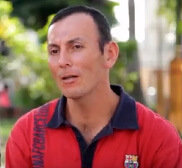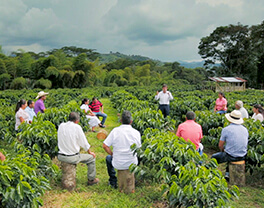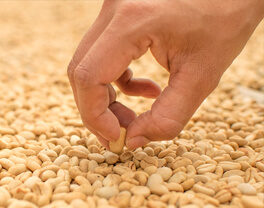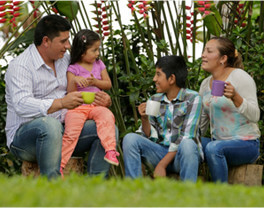The Environmental Axis
we work through 2 paths
Natural resources management
We develop technologies that save water and prevent contamination in production processes and we train in its use and in the adoption of practices that make Colombian Coffee 100% sustainable.
Adaptation to climate variability
In addition to developing and promoting the use of better climate-adapted varieties, we train in shady management, reforestation and protection of water sources and soils.
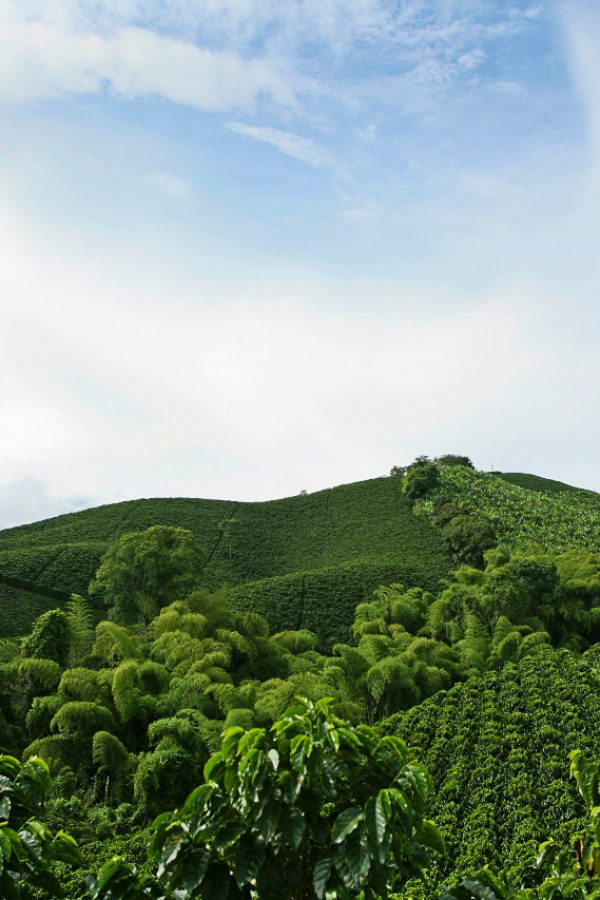
Outstanding contributions in our environmental management
Cenicafé, our scientific arm, has contributed to a cleaner coffee farming, more respectful of the environment:
- Through the development of disease-resistant varieties and promotion of integrated management practices that avoid the use of fungicides, pesticides and herbicides.
- By developing technologies for wet milling of coffee: tub tank, Becolsub, and Ecomill®, which have meant:
- Saving 850 million L of water per year*.
- Reducing or even eliminating wastewater.
As of the first quarter of 2018, over 30% of coffee wet mills were already organic and over 50% were in transition towards this technology. *(according to a sampling on 66,000 farms carried out between 2016 and 2017).
- According to a rigorous study under the concept of Nationally Appropriate Mitigation Action (NAMA), coffee farming in Colombia captures 5.2 times the carbon it emits, a very eloquent figure in environmental matters.
- We have the ISO 14001: 2015 environmental management certification.
- Buencafé has achieved important results in environmental matters: lower consumption of natural and energy resources (use of rainwater for industrial processes and a pilot project of solar panels), reduction of emissions and wastewater, and good waste management, which includes using all the coffee grounds as fuel in boilers.
Manos al Agua-Intelligent Water Management (IWM)
It is perhaps the largest project focused on integrated water resource management that a coffee-producing country has implemented.
With an investment of over 25 million euros through a Public-Private Partnership (PPP, in which the Dutch and Colombian Governments, Nestlé, Nespresso and the University of Wageningen participated) during its six years (2013-2018), this project implemented by the FNC, with the technical and scientific support of Cenicafé, impacted over 11,600 coffee-growing families in 25 river basins of Antioquia, Caldas, Cauca, Nariño and Valle del Cauca.
The farms and the entire intervention area showed improvements in water management and greater capacity of the communities to make decisions on climate variability.
92% of the 25 river basins showed improved water quality, of which 40% achieved “good” quality downstream from the intervention zone.
For its scope and achievements, IWM received important awards, such as the 2018 Sustainability Award of the Specialty Coffee Association (SCA) in the USA, in the category of Sustainable Projects.
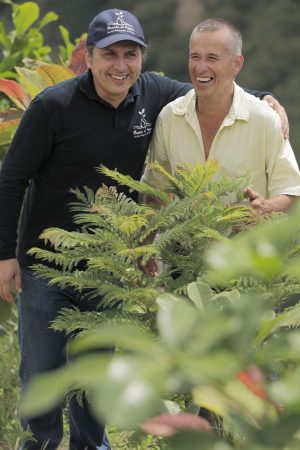
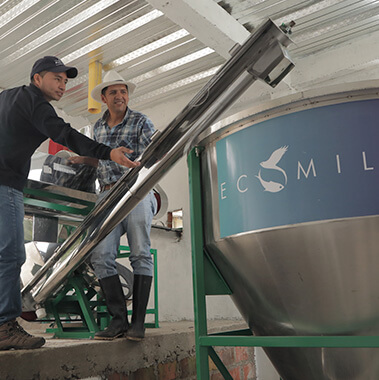
CASE OF SUCCESS
Water resources
Constant development of methods (such as pulping without water or dry transport of pulp) and ecological wet milling technologies (such as the tub tank, Becolsub and Ecomill®) has allowed Colombian coffee farming to save more and more water and substantially reduce pollution, which includes an adequate disposal of by-products and wastewater treatment.
From consuming up to 40 liters of water per kg of dry parchment coffee (dpc) in the traditional method, with technologies such as Ecomill® water consumption has dropped to 0.5 liters per kg of dpc.
Data of interest
850
million L of water are saved per year with eco-friendly wet milling technologies
0,5
L of water per kg of dpc is used by cutting-edge technology Ecomill®100%
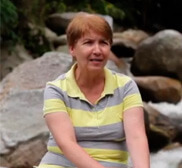
CASE OF SUCCESS
Forest and biodiversity conservation program
Developed since 2005 in partnership with the Colombian and German governments, it impacts 59 municipalities in eight coffee departments.
It has implemented actions for adequate land use, combining coffee cultivation with agroforestry, forest plantations and live hedges, along with actions in conservation and care of natural forests, with a management and planning approach that favors biodiversity habitat connectivity in the coffee zone, together with sustainable production practices that use and pollute less water, moderate the use of agrochemicals, reduce organic and inorganic waste, and conserve soil.
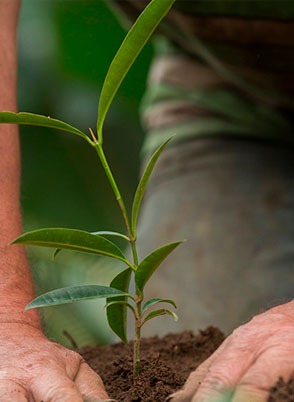
Data of interest
10.577
hectares of forest plantations and agroforestry systems established with small farmers between 2015 and 2018.
4.417
hectares of conservation and protection of river basins
3.052
hectares of biodiversity conservation corridors in the coffee zone
